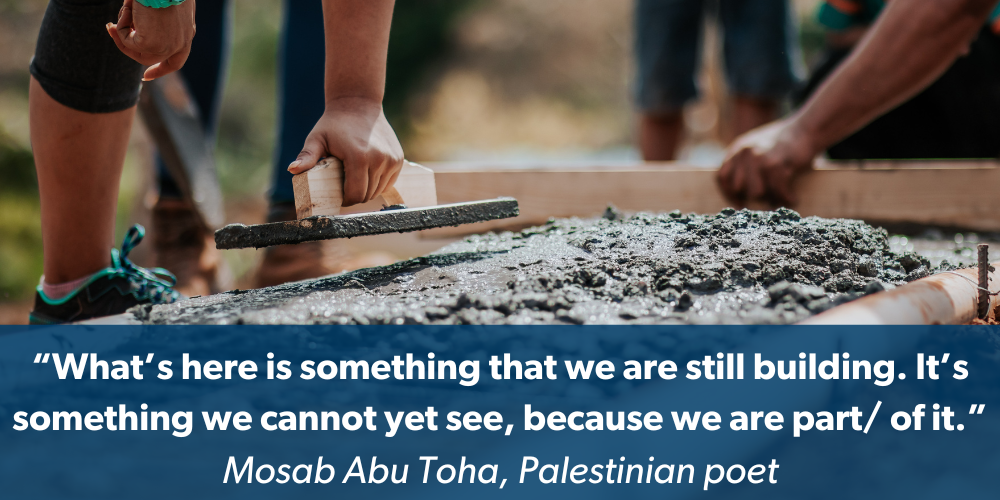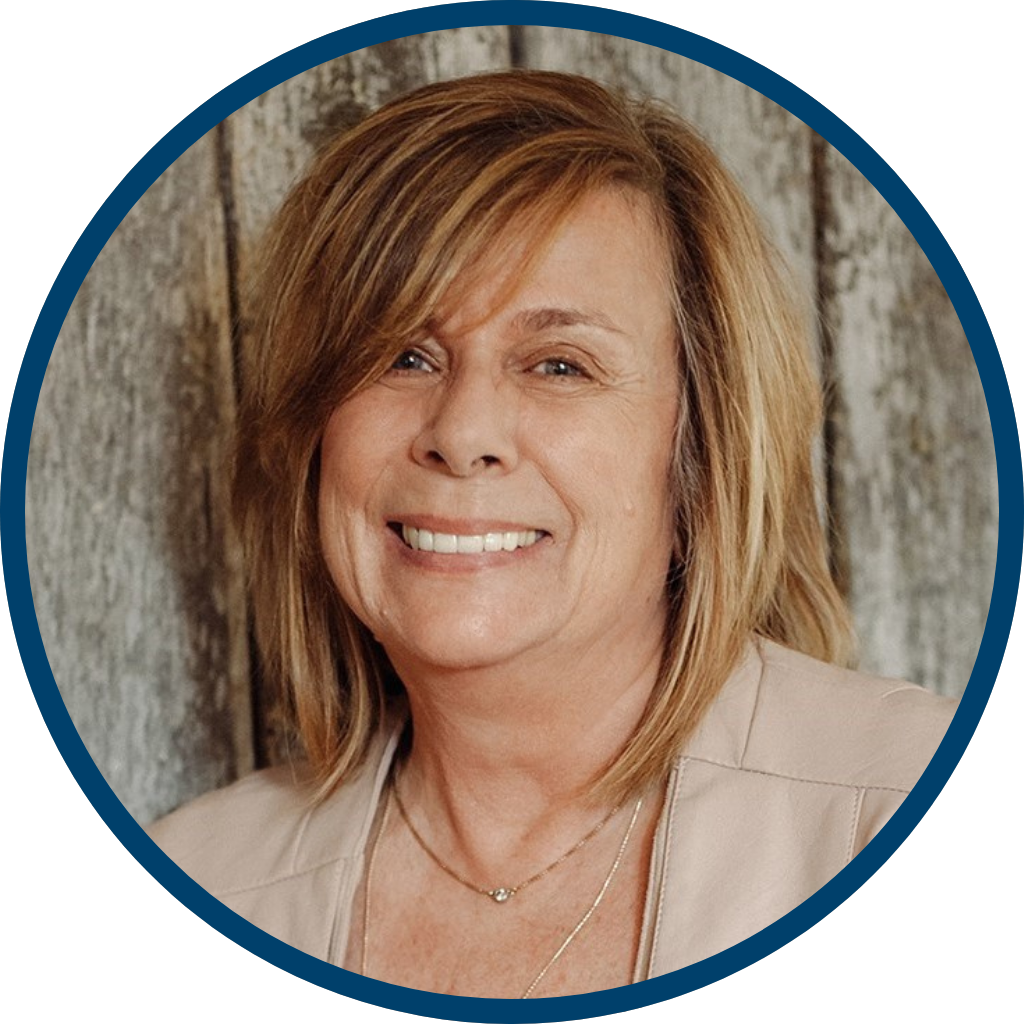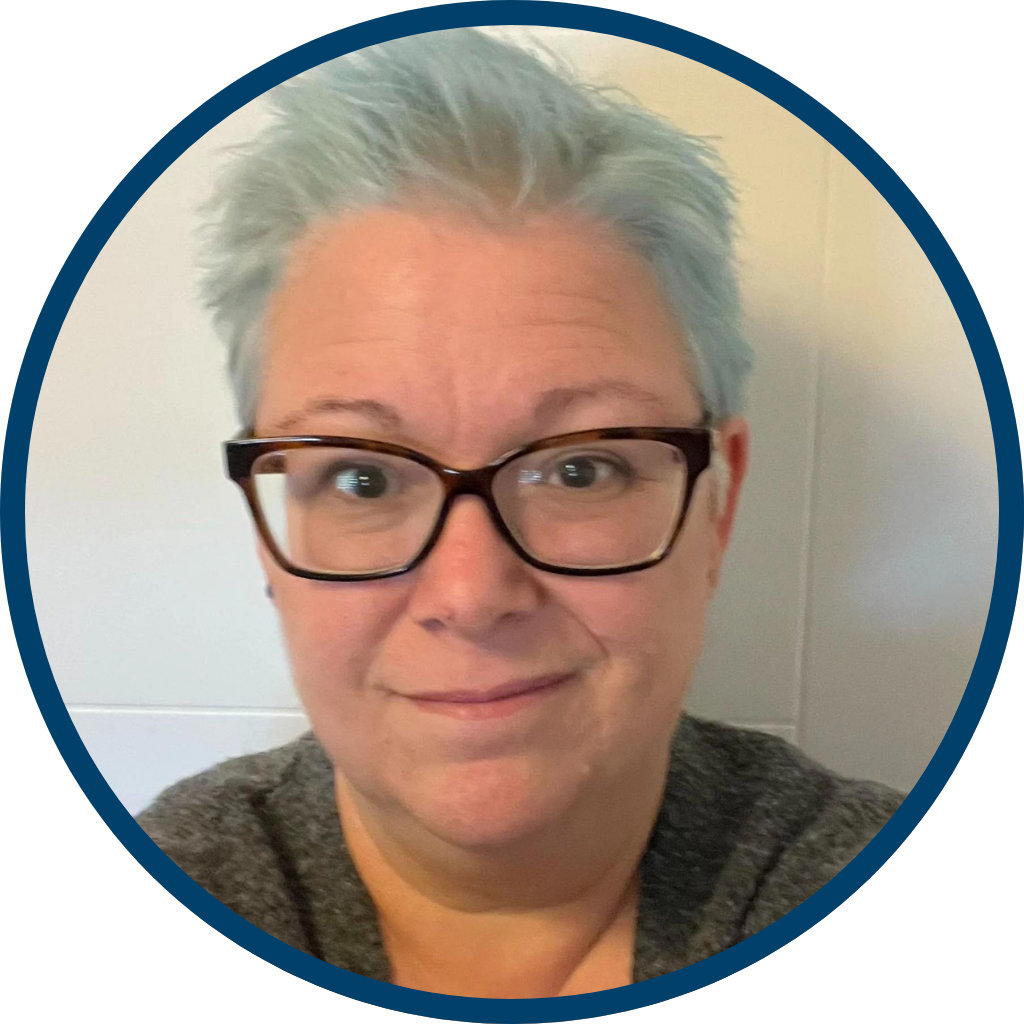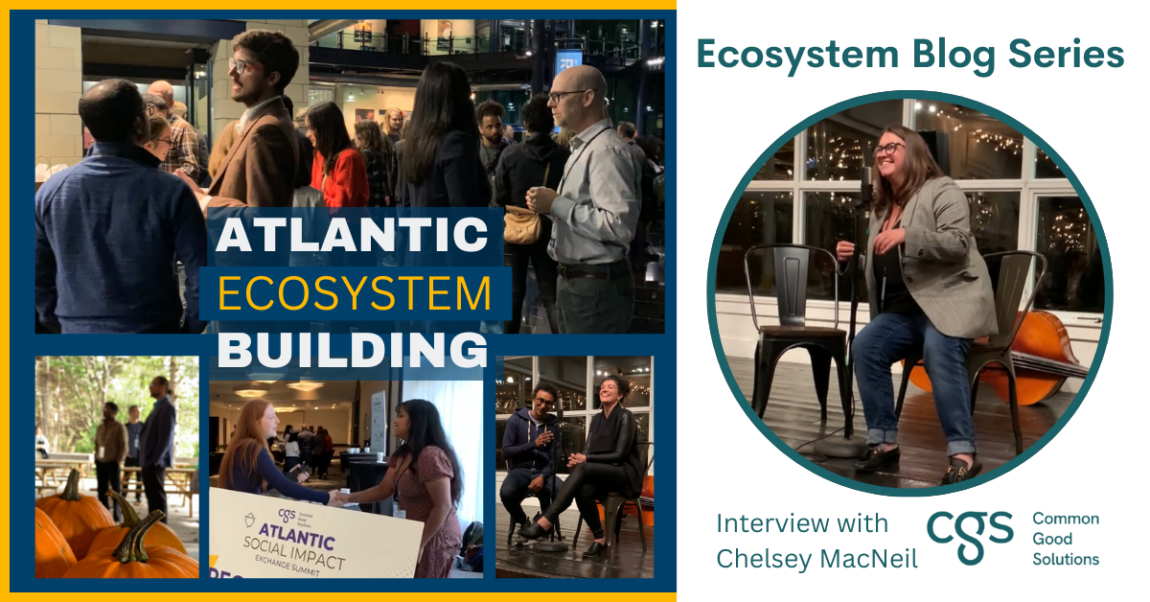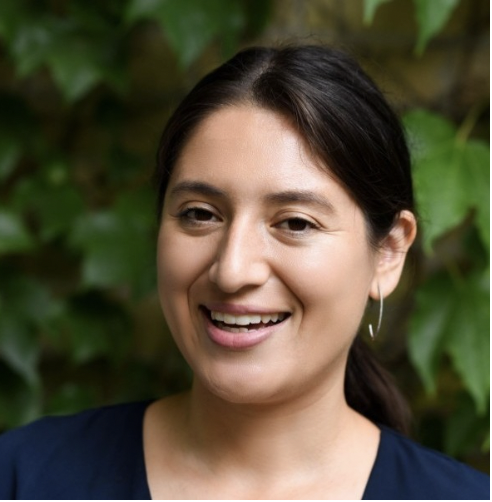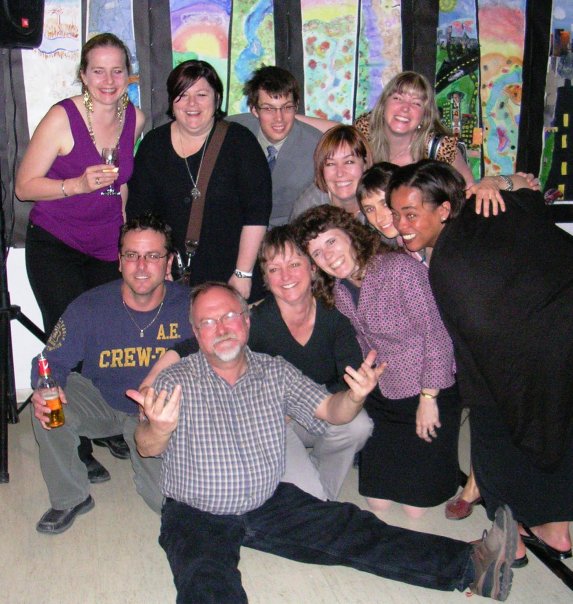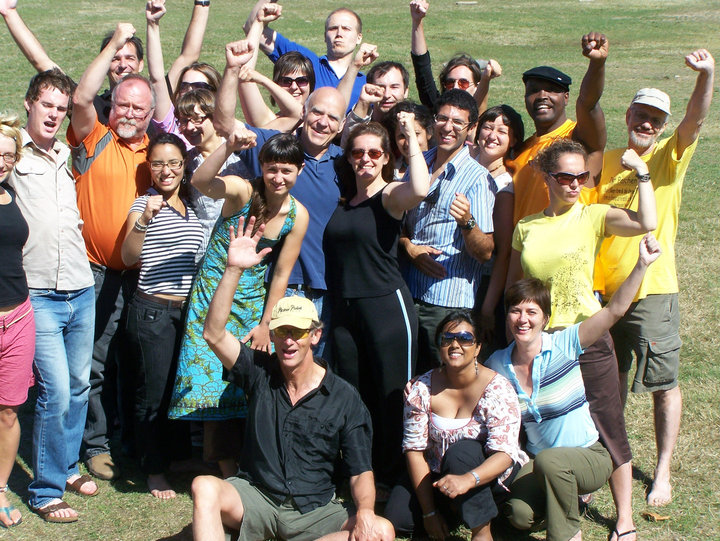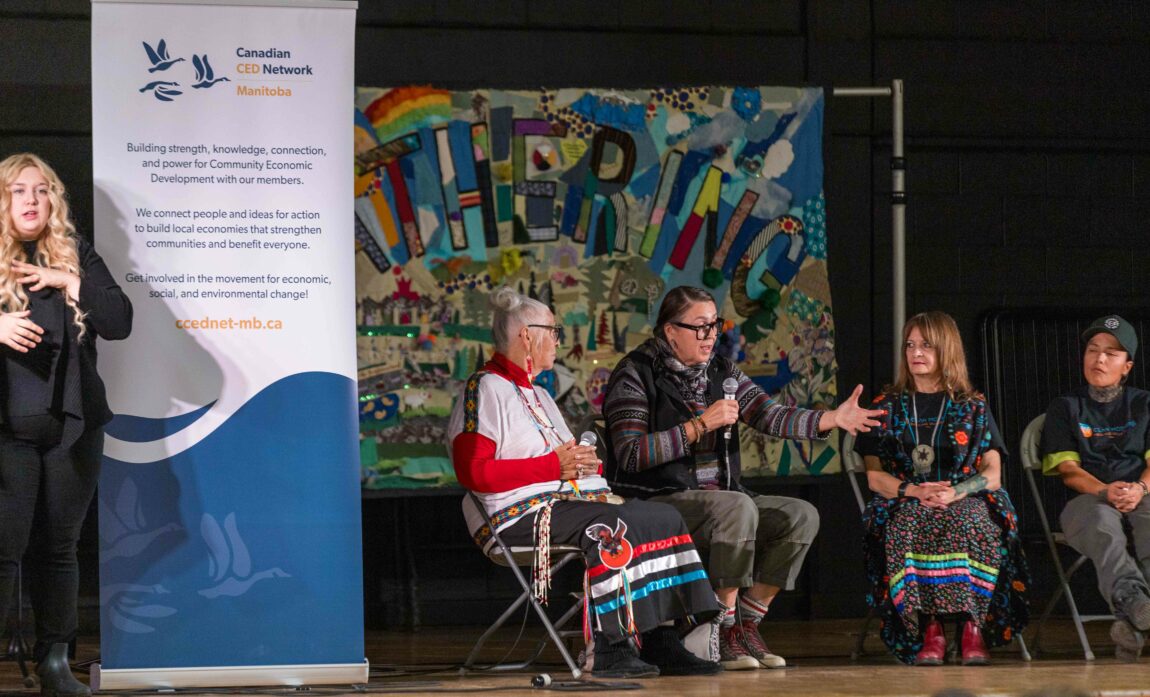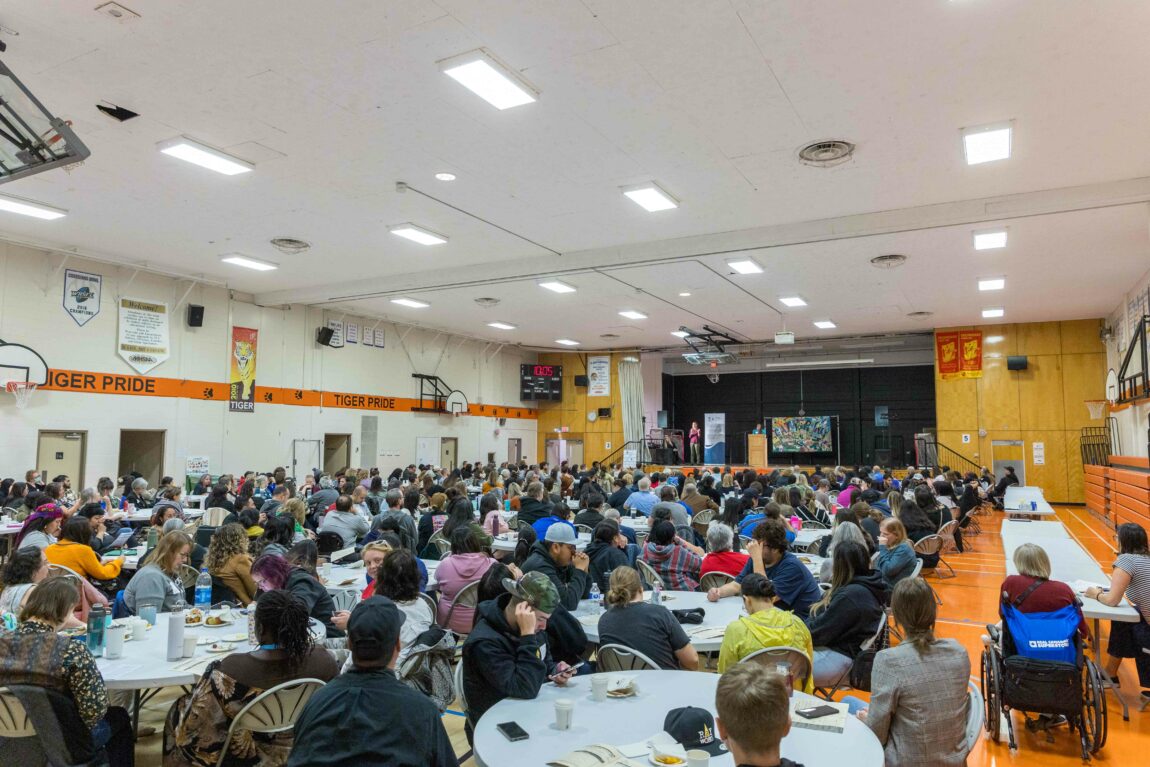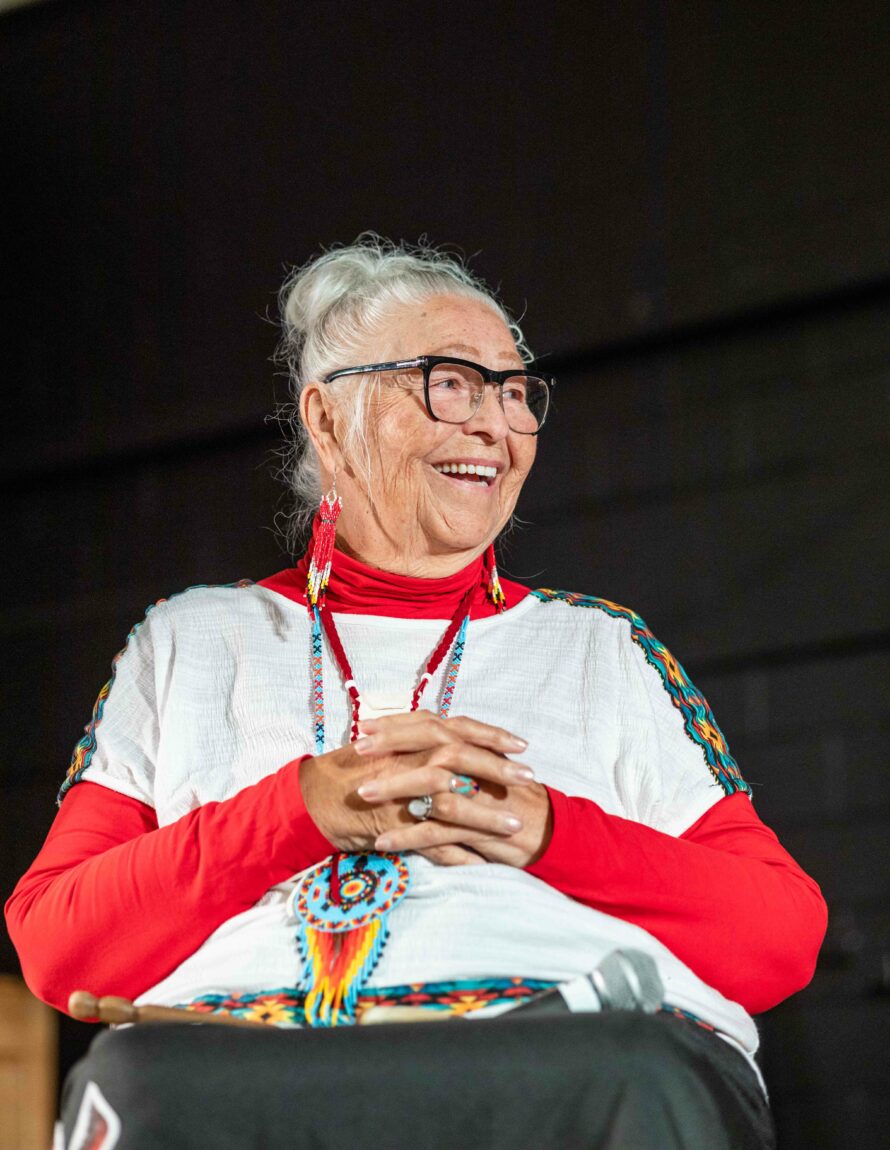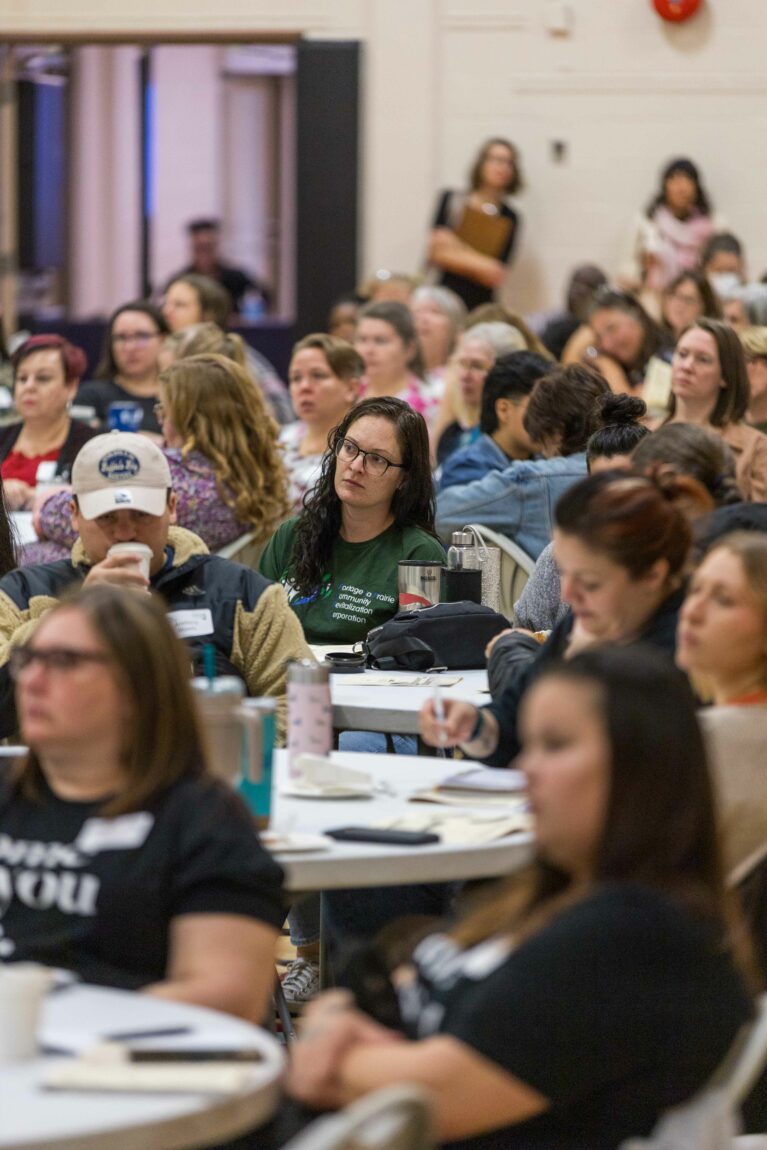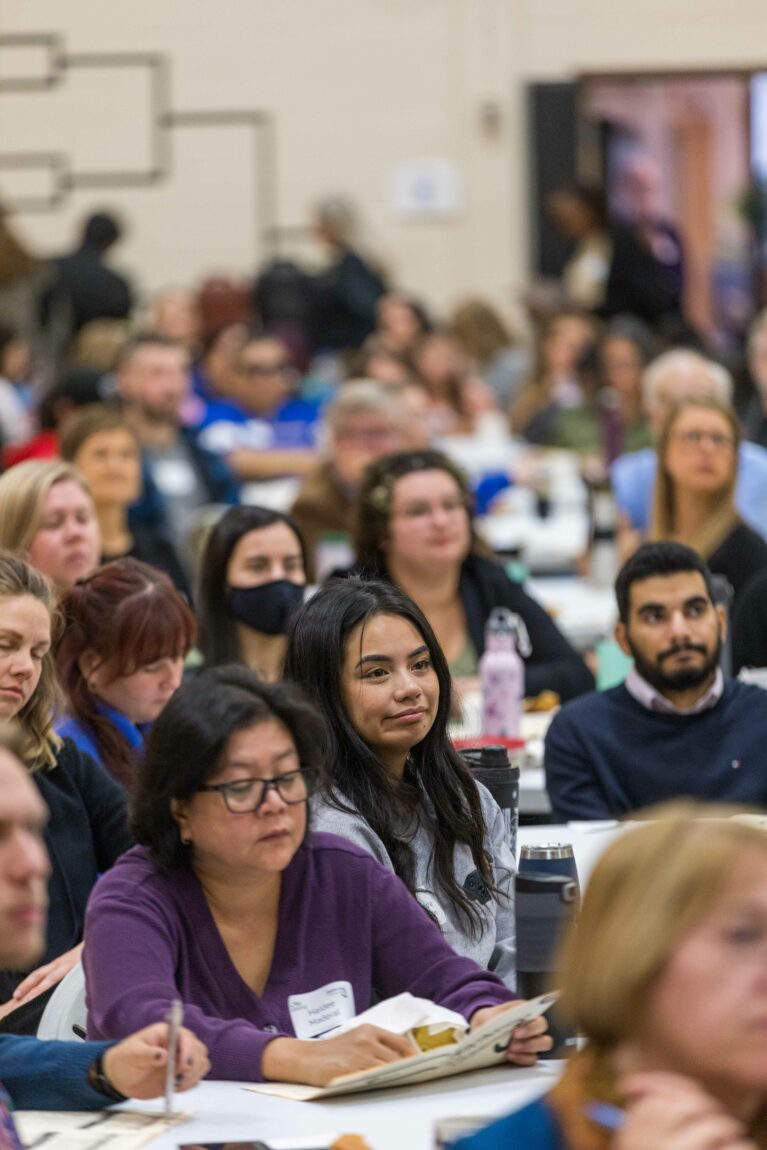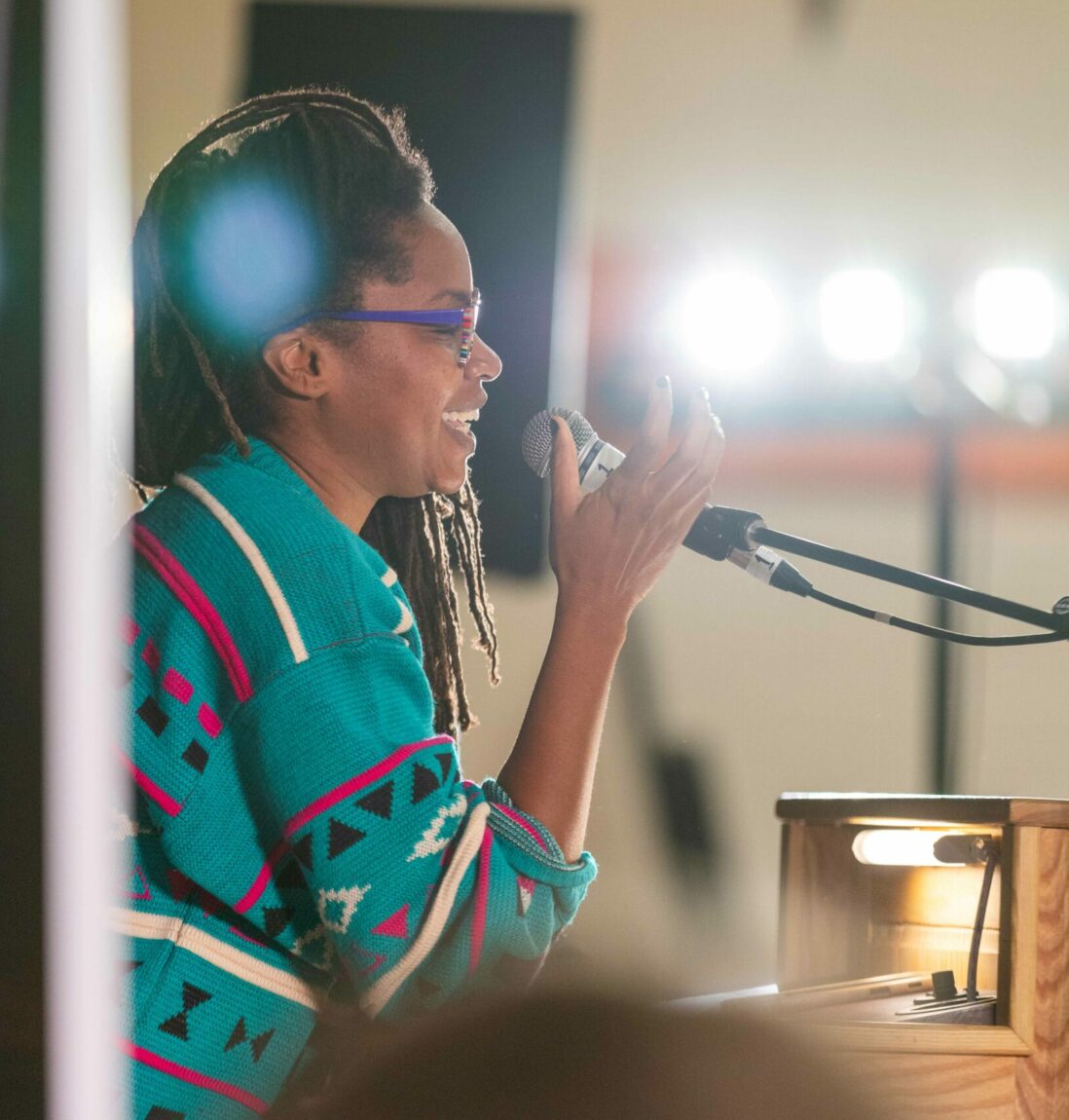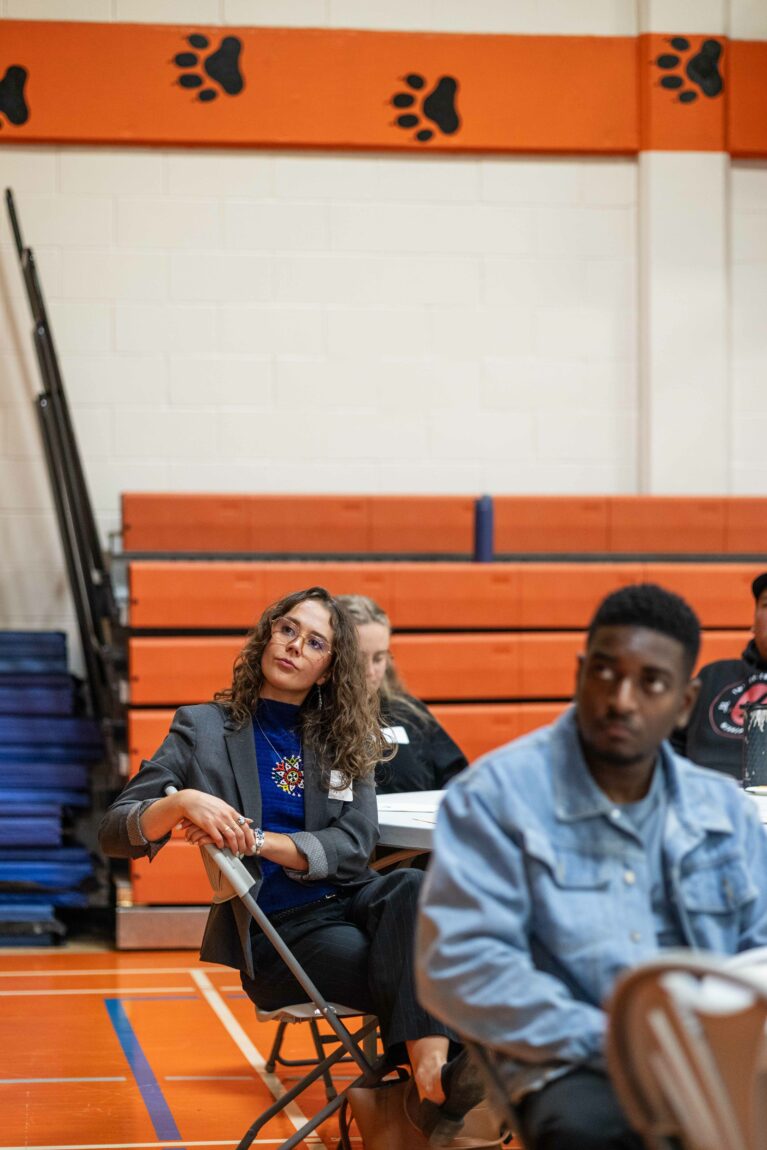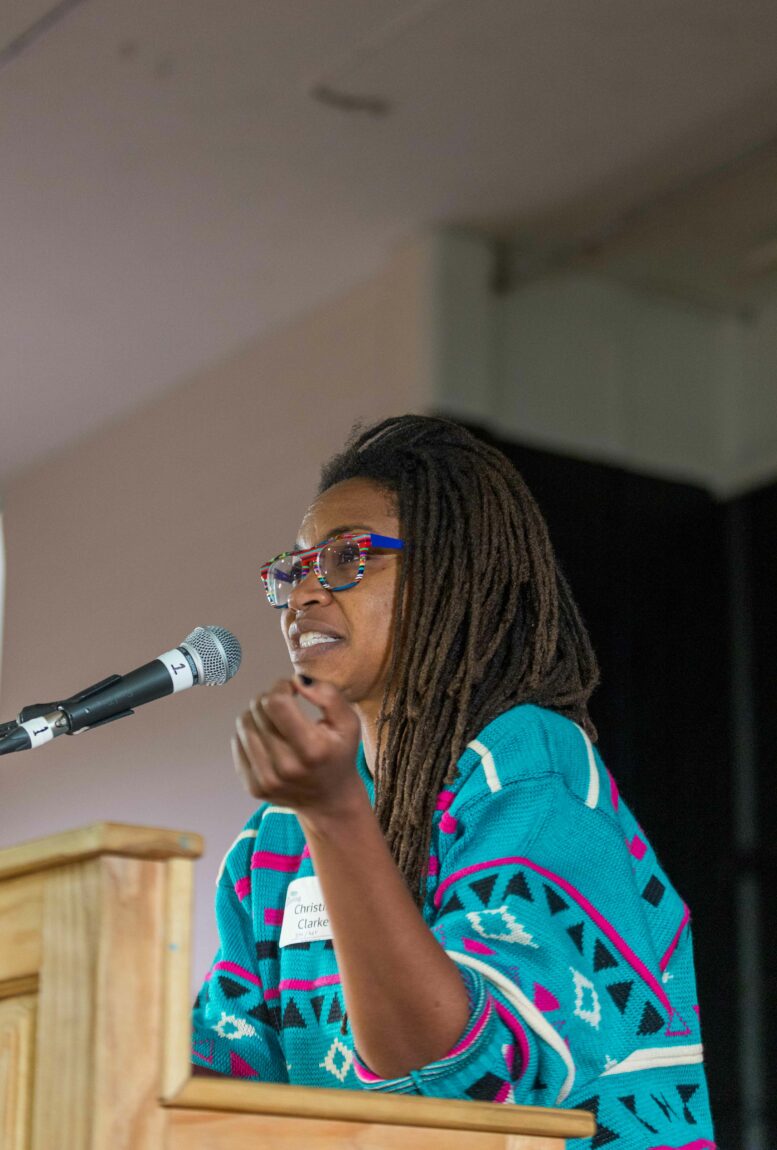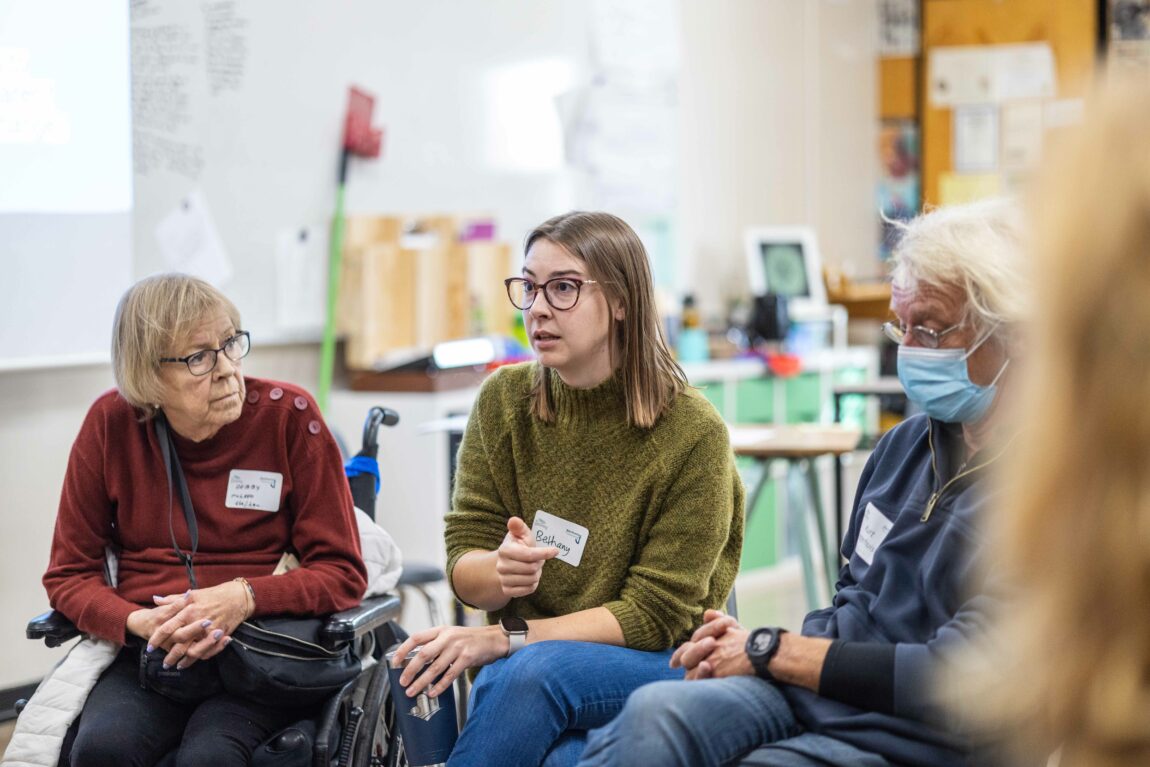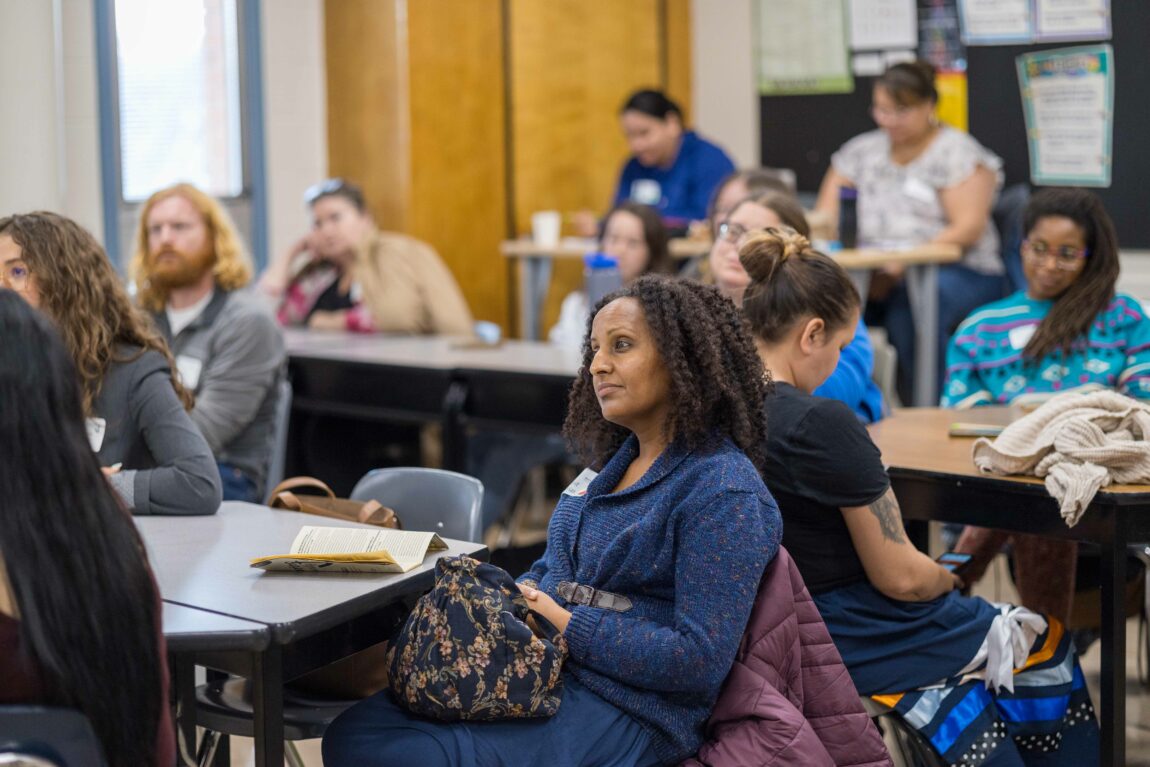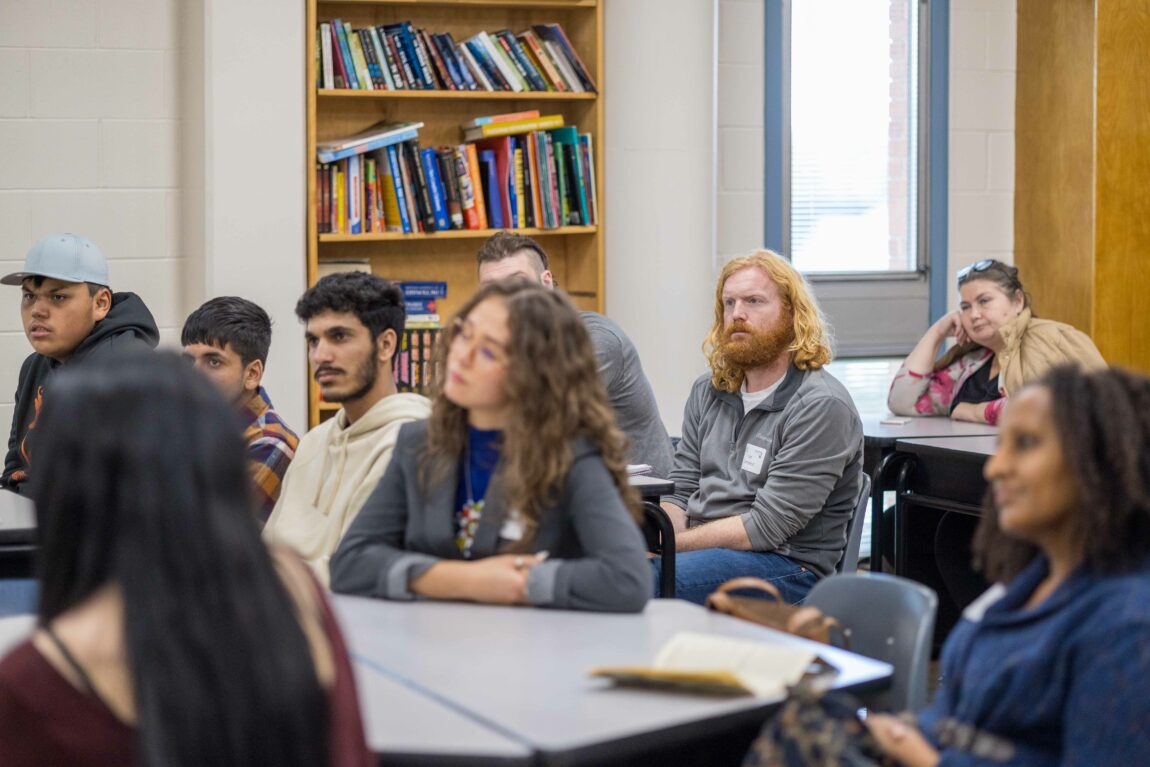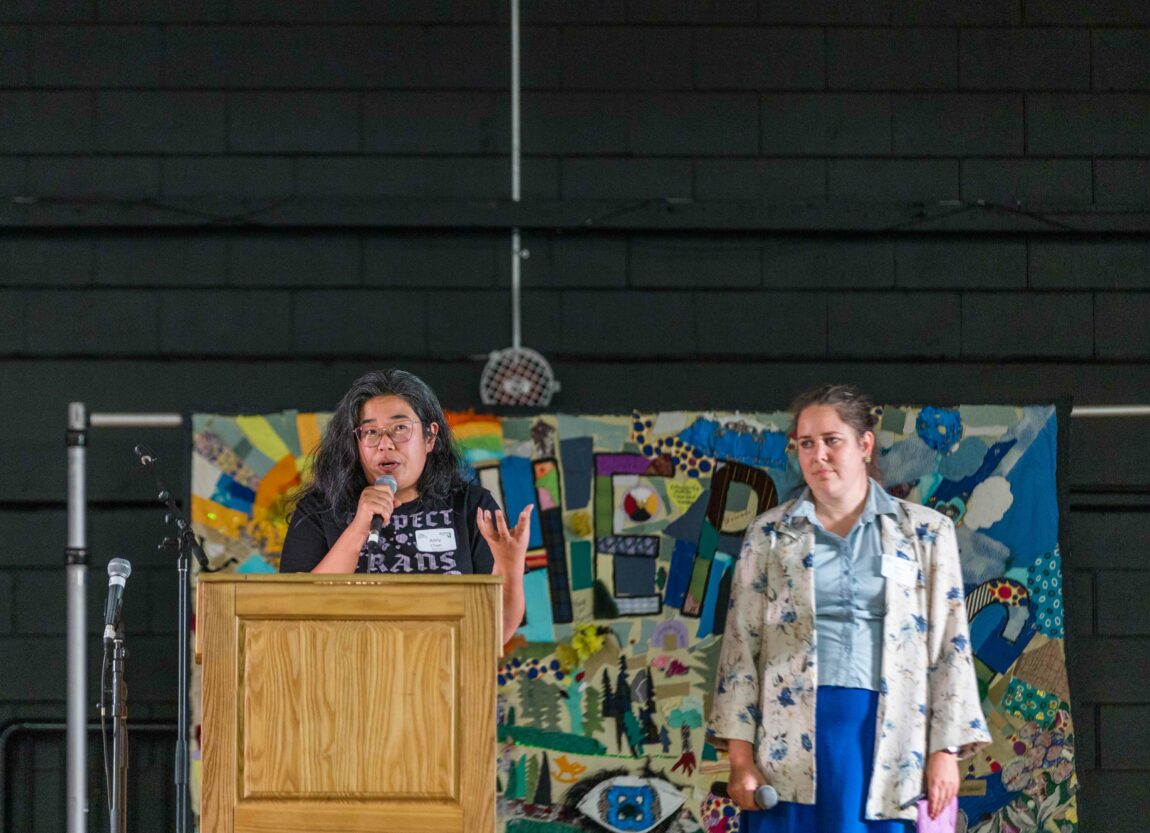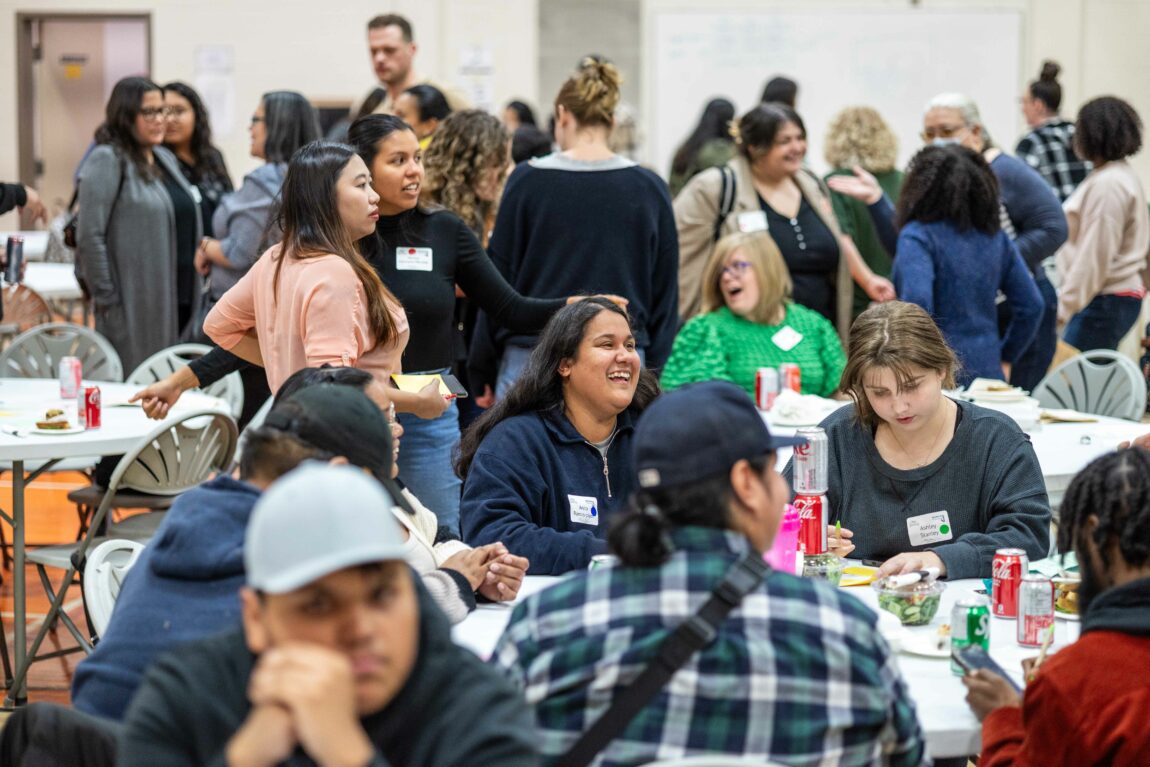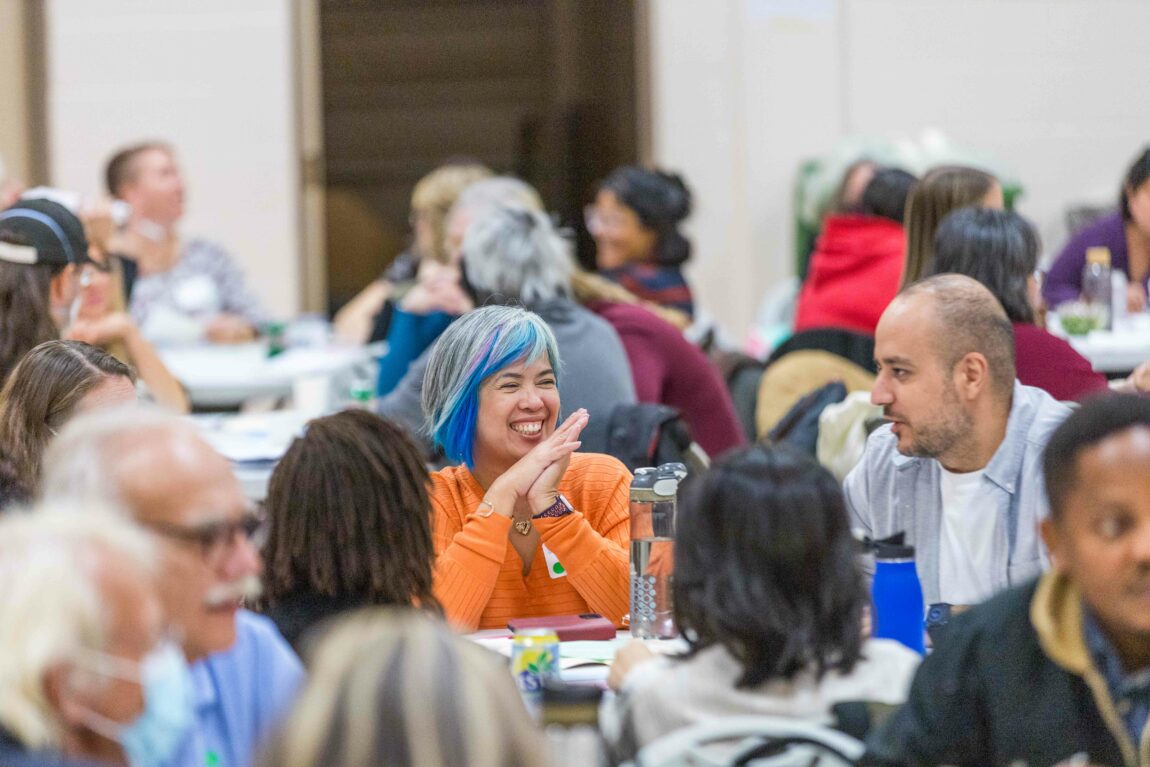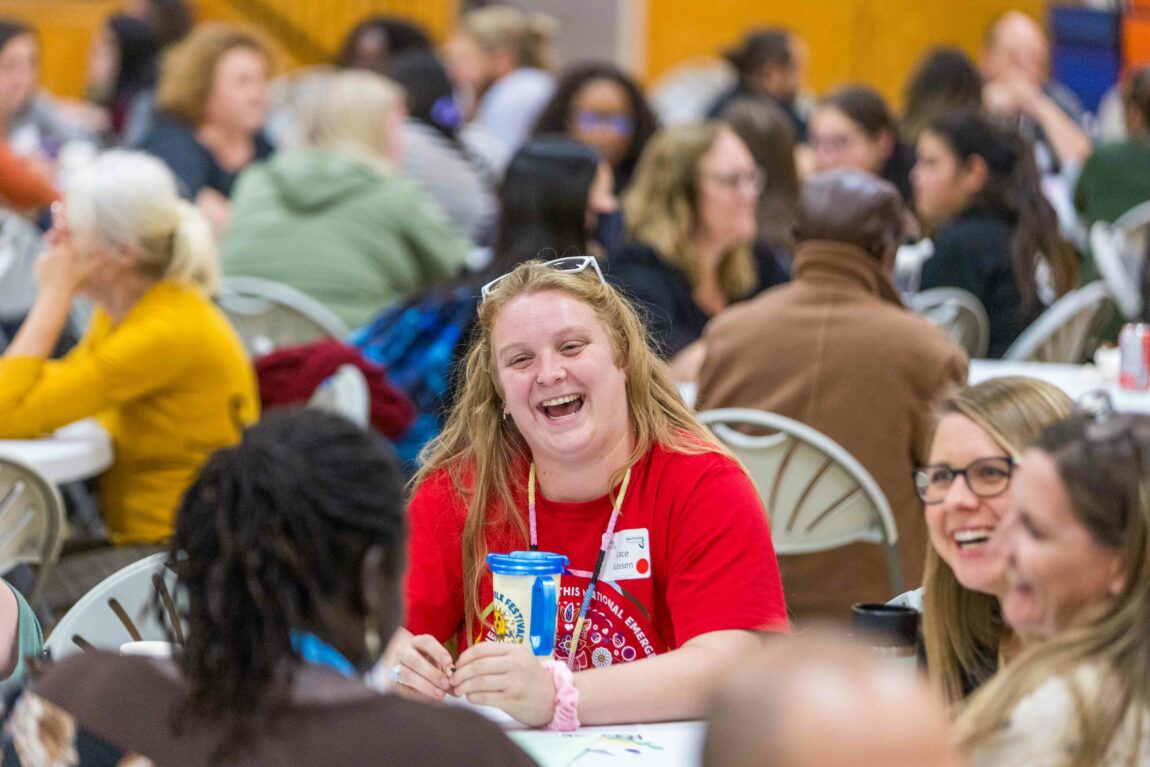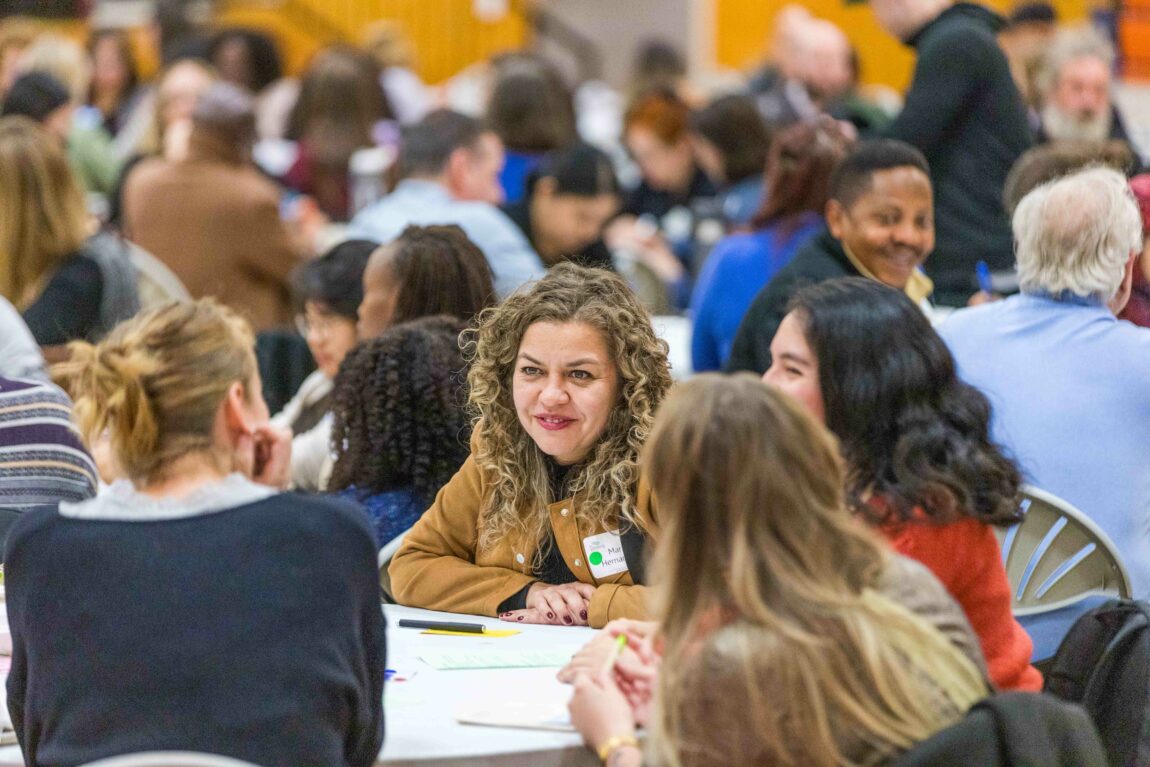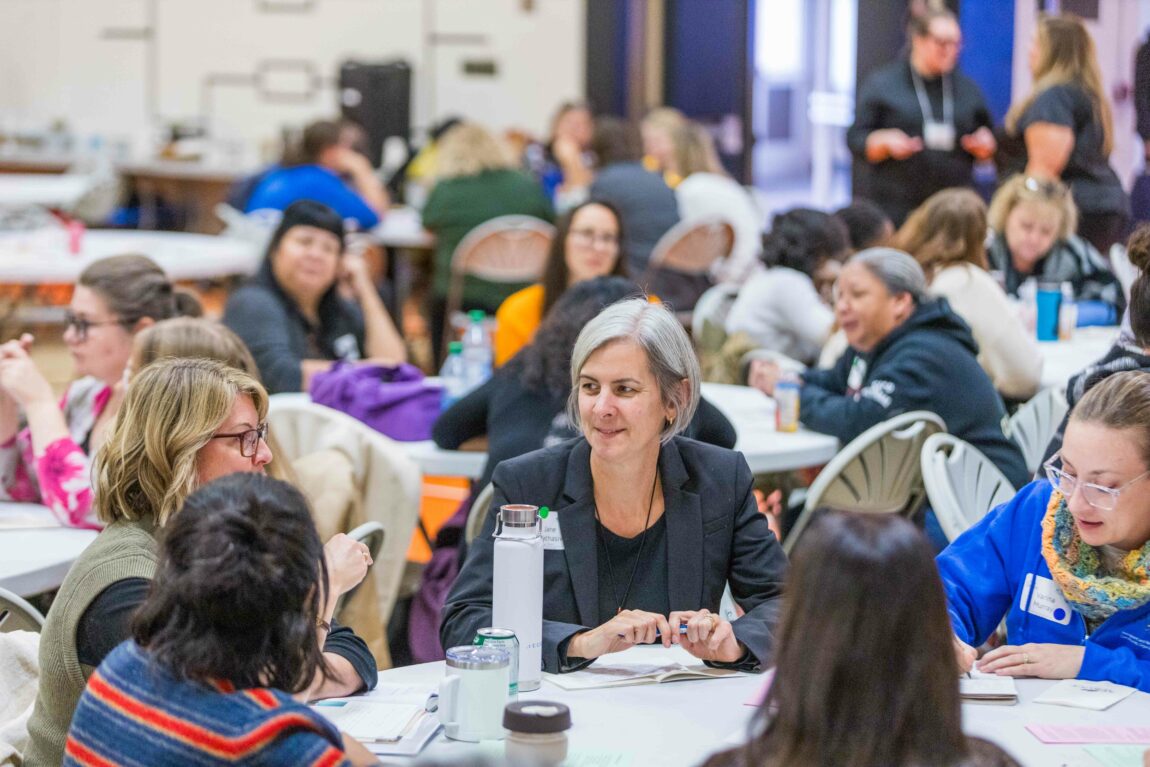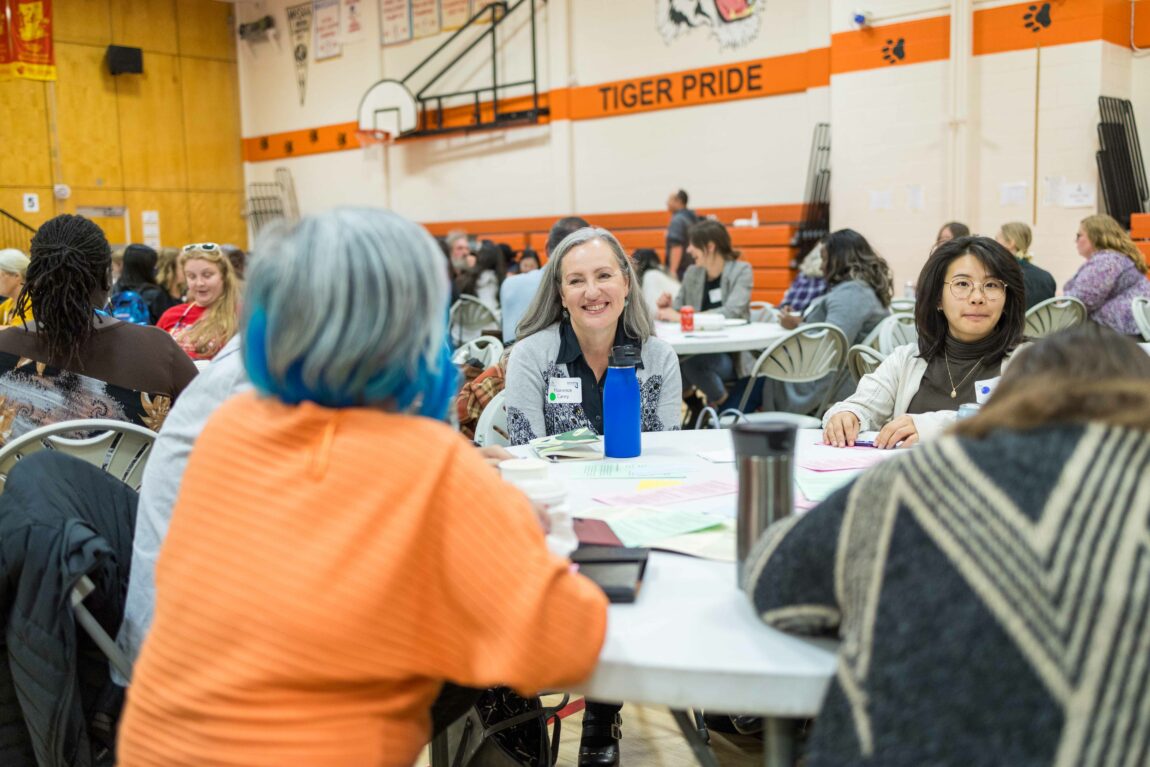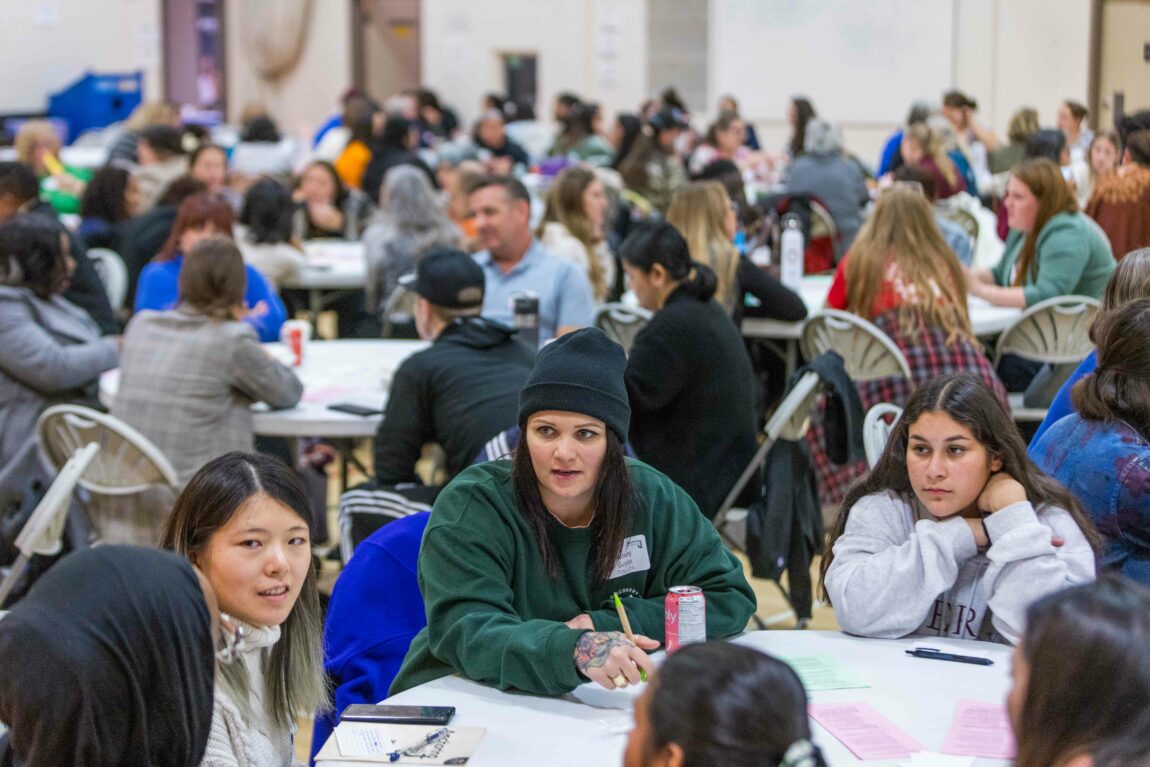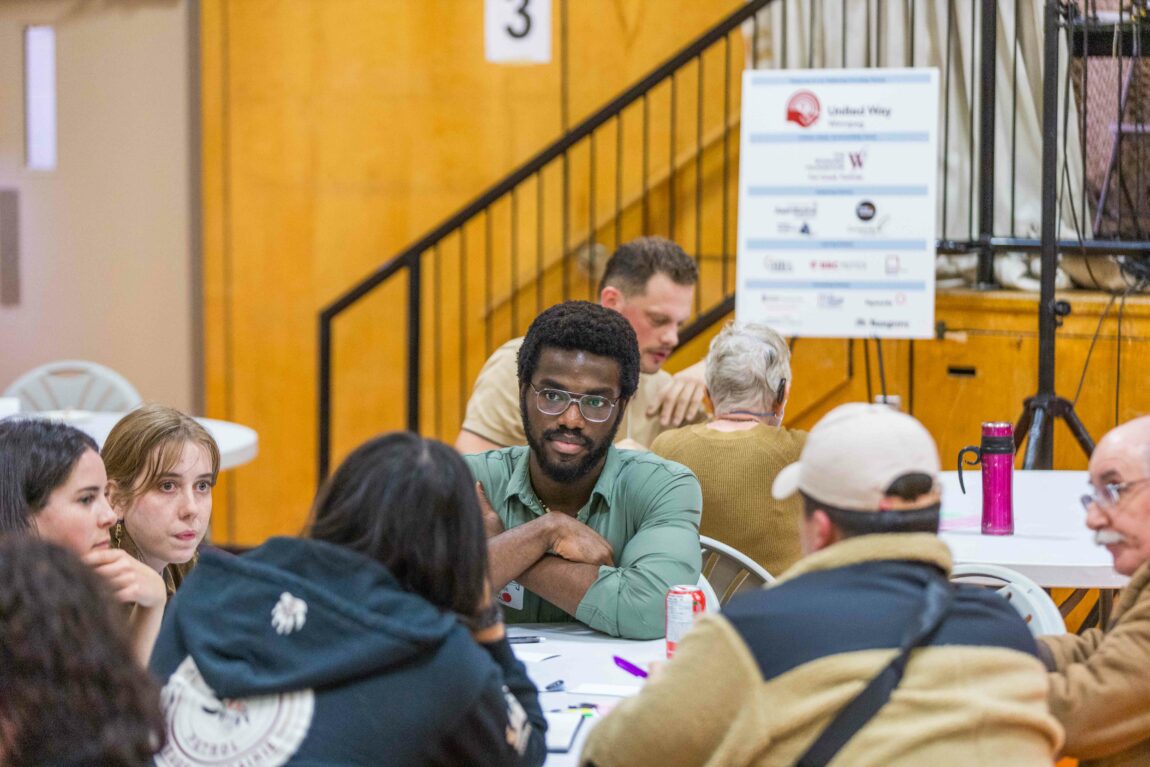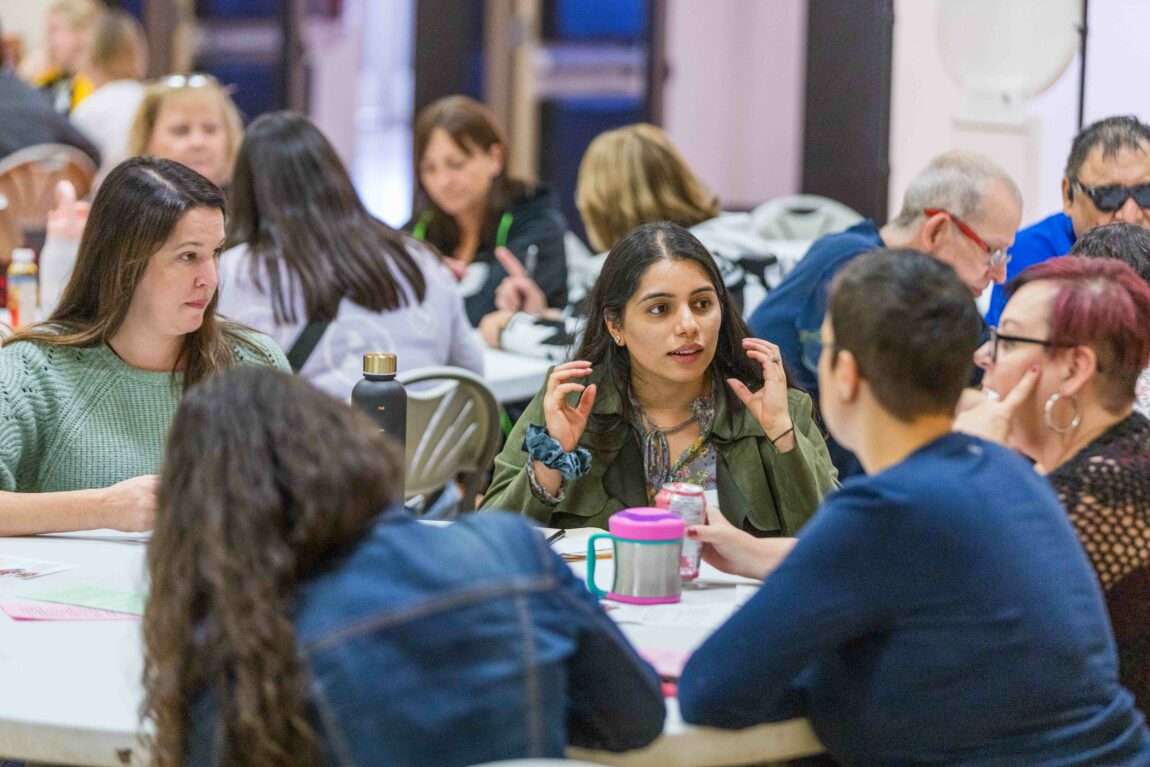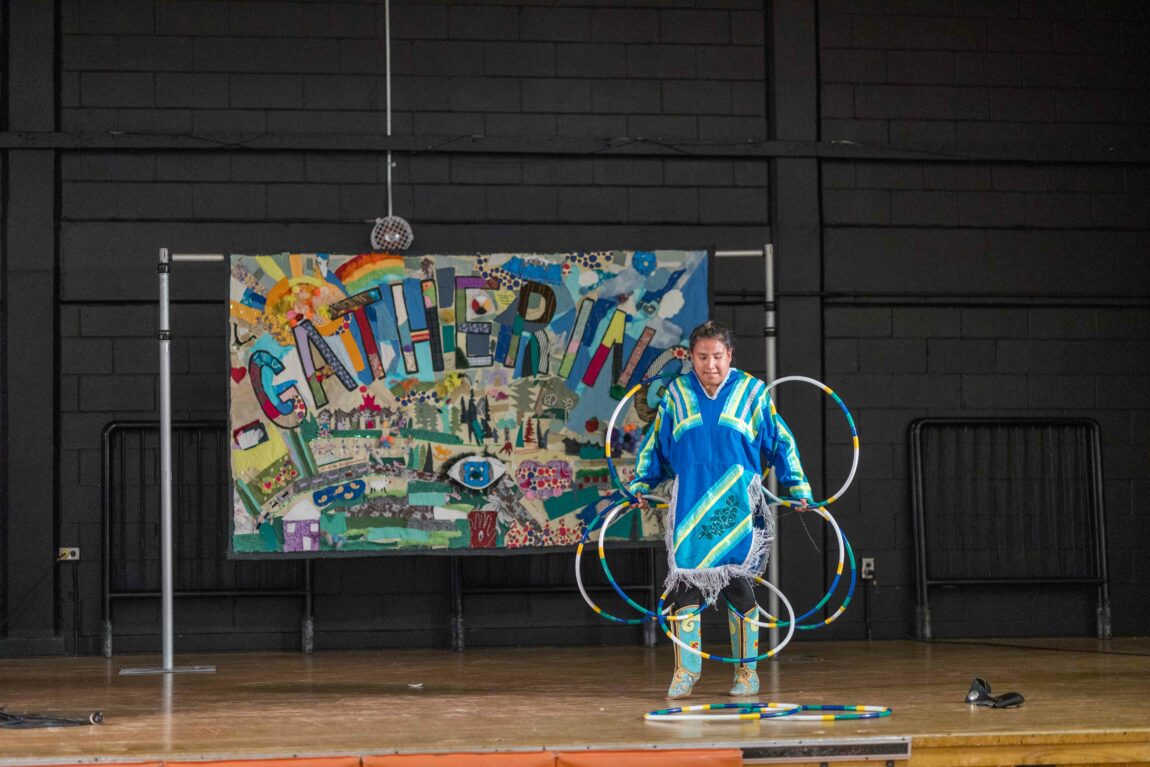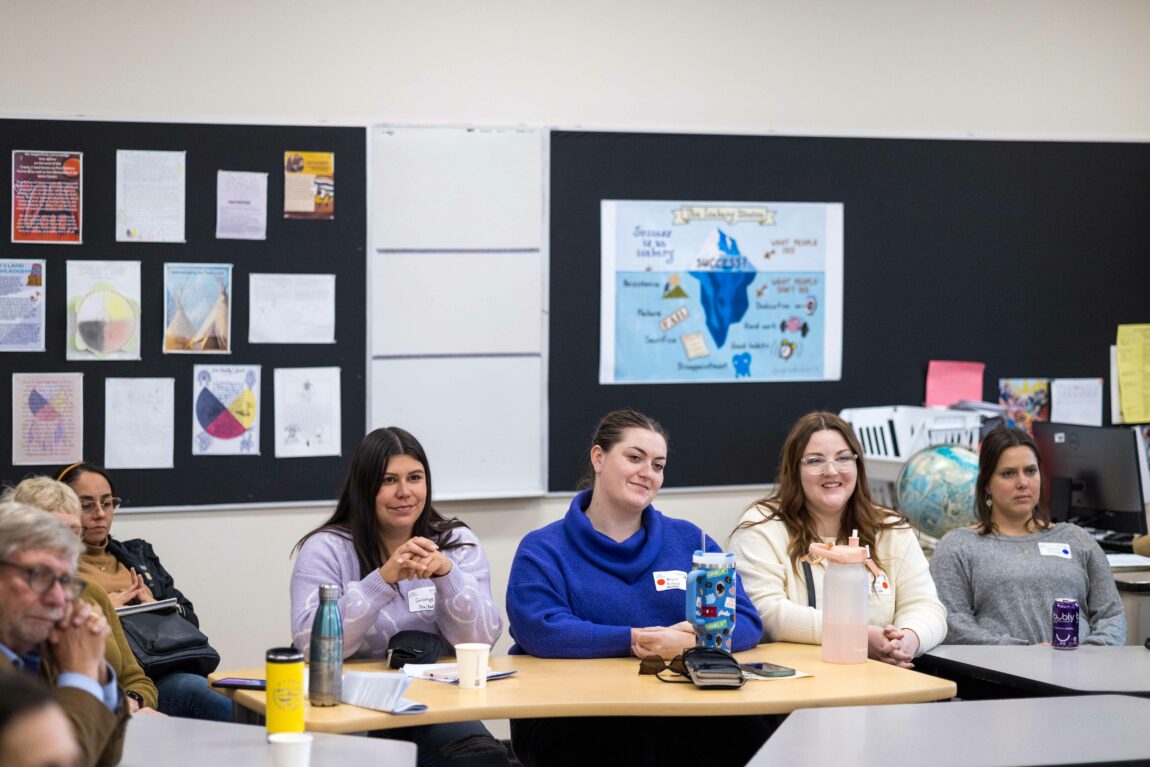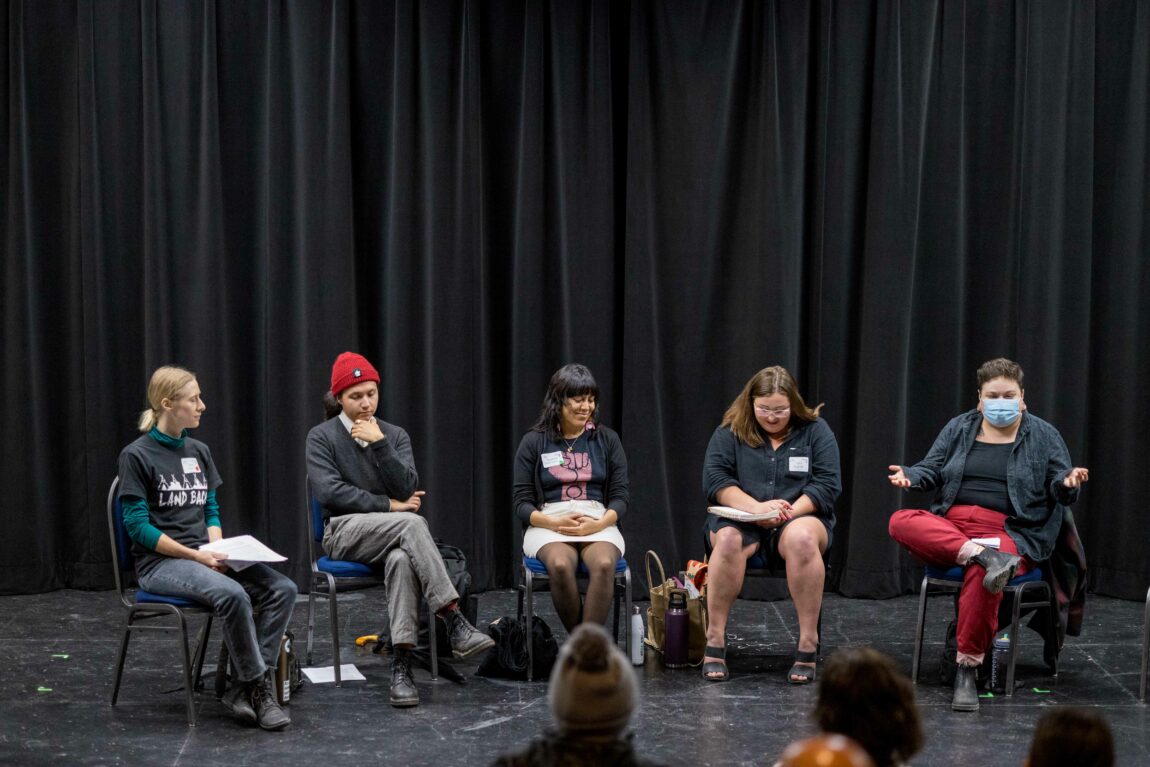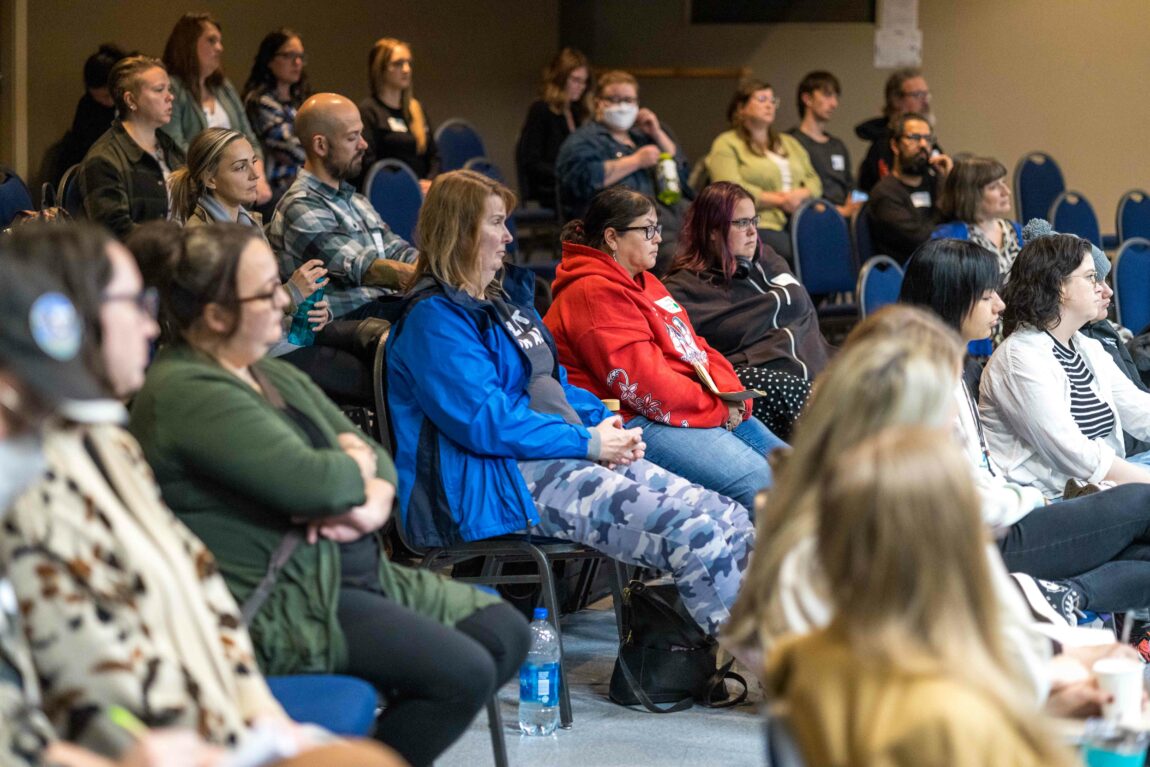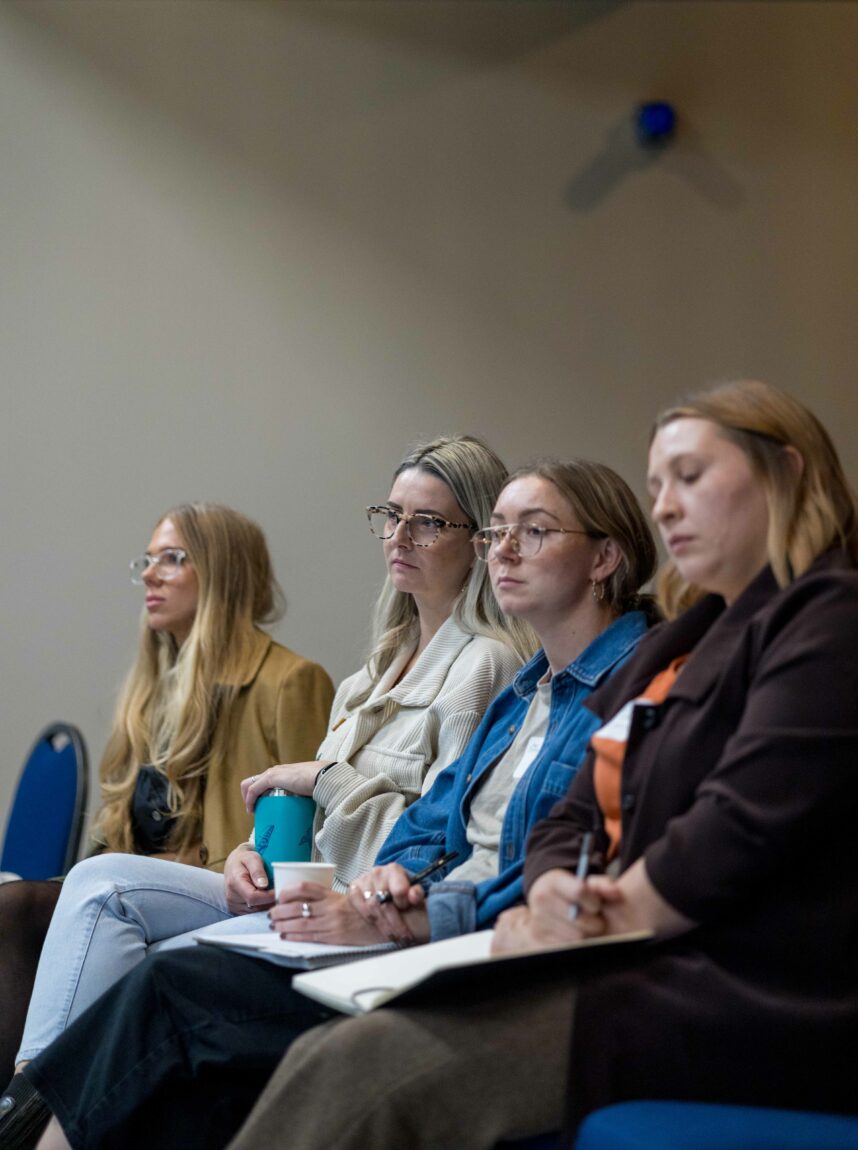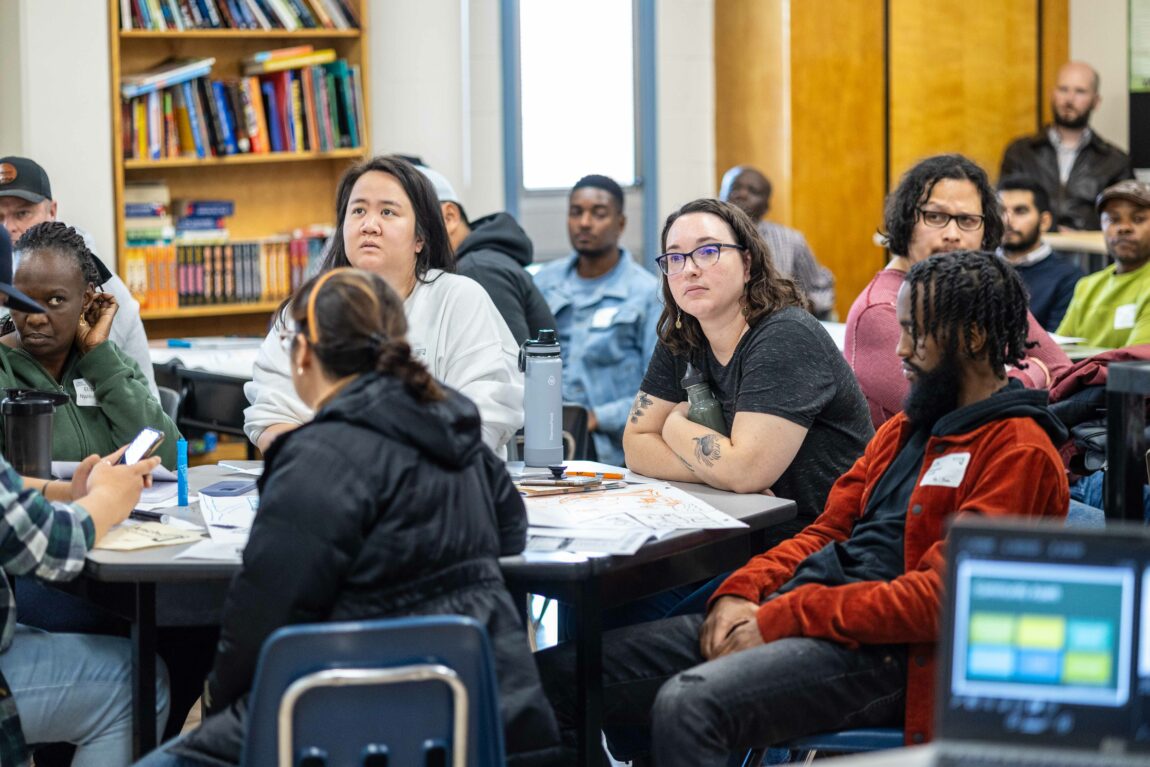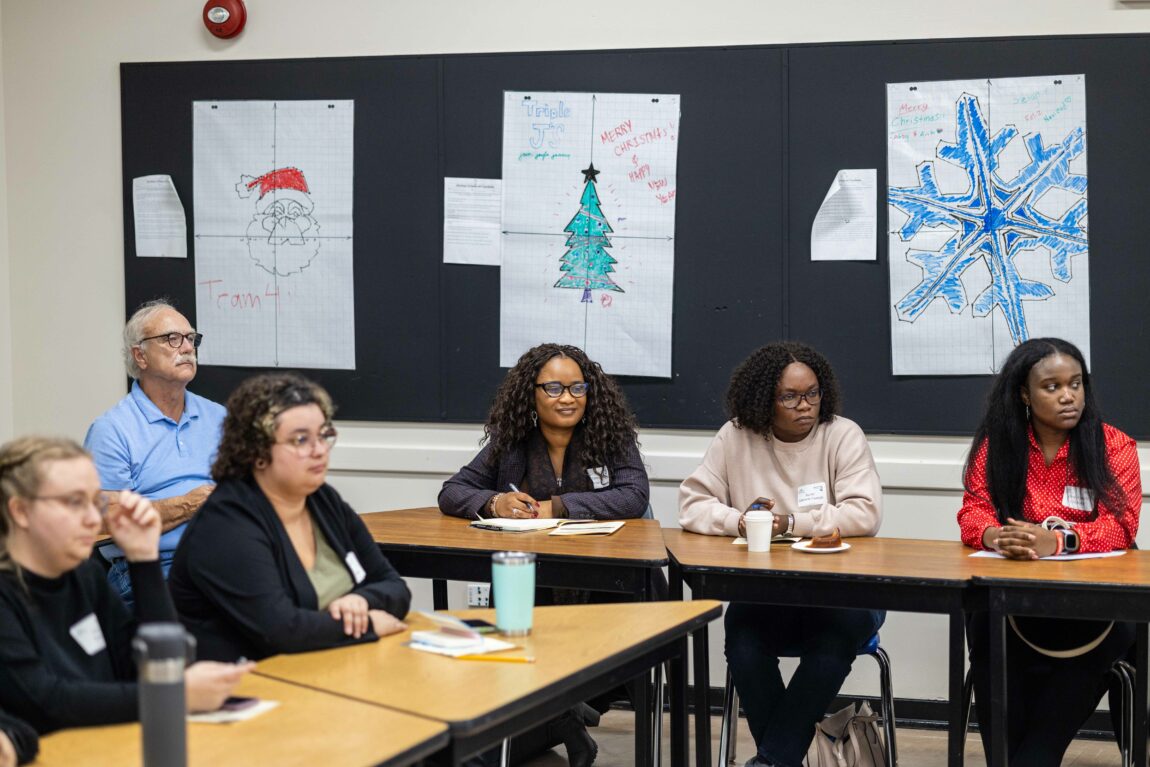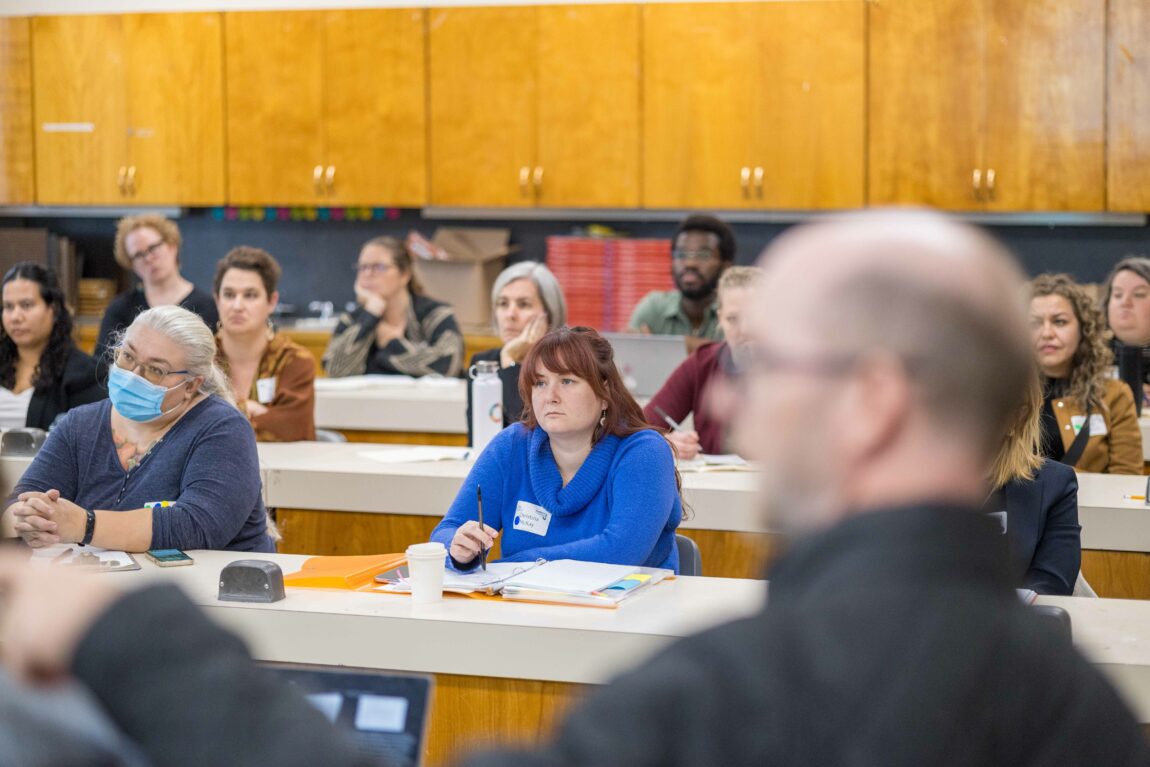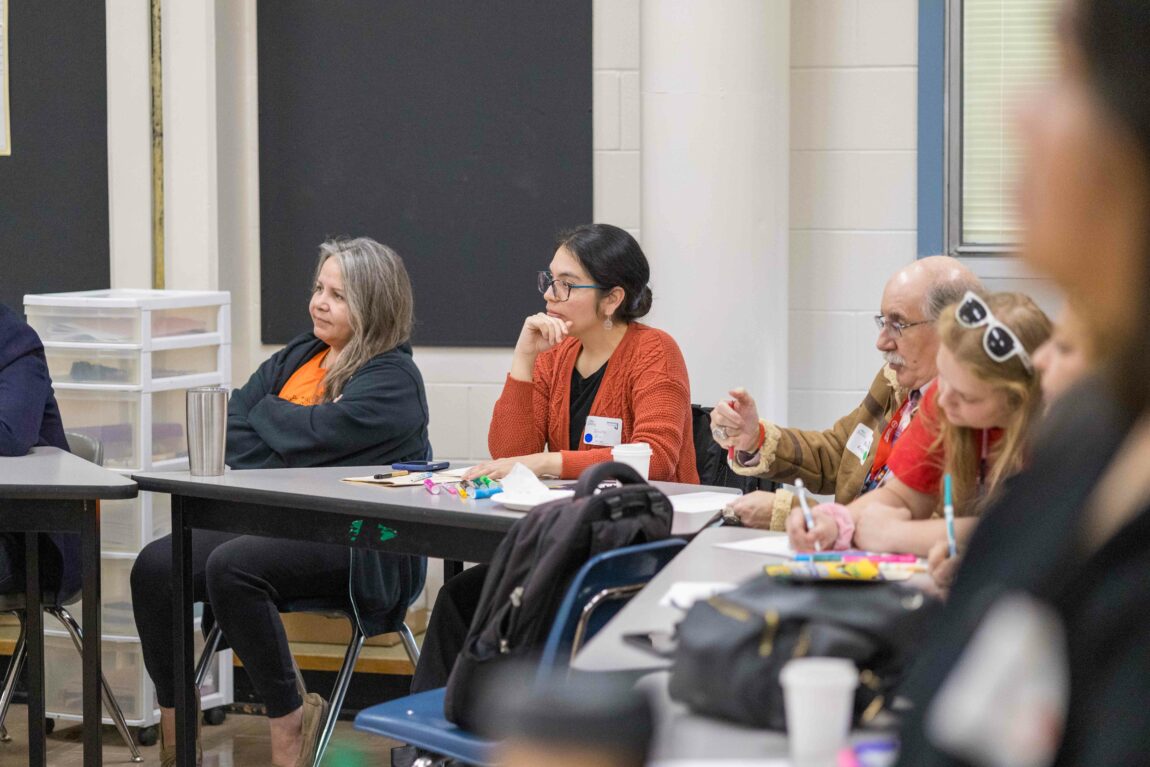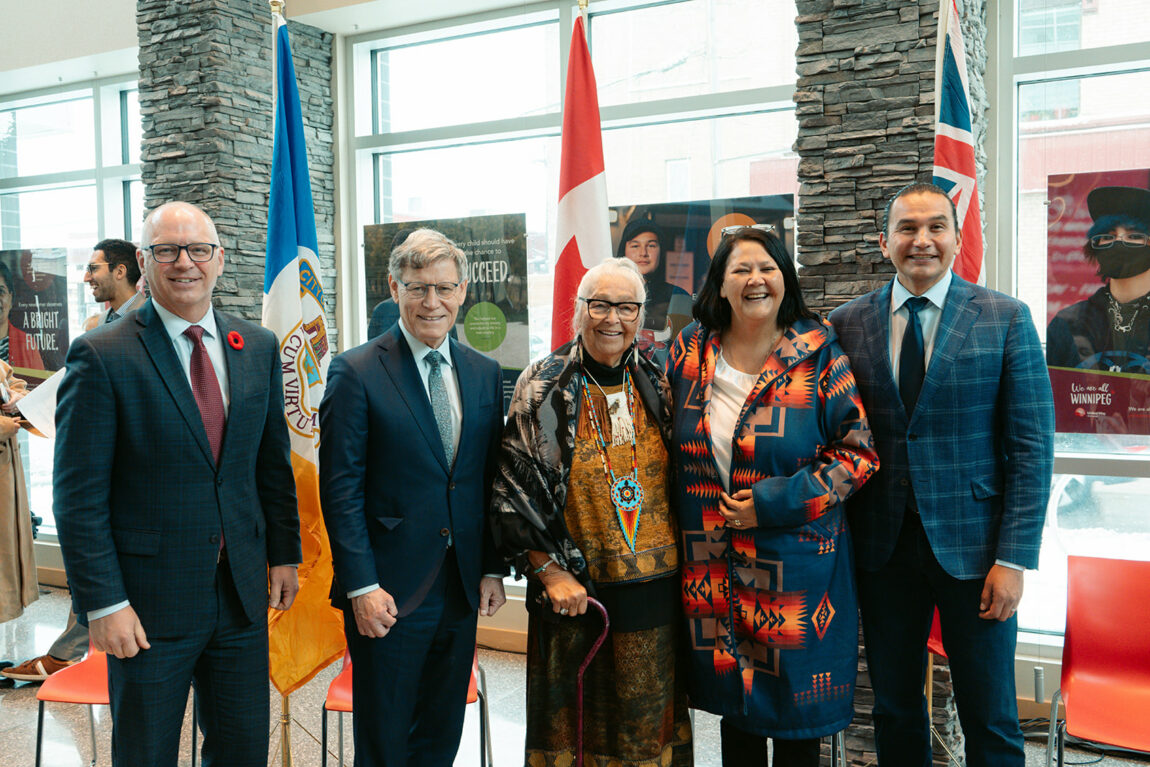The climate crisis is an escalating threat, but we are not powerless. Michael Lewis, co-founder of Synergia Institute, reflects on how we can strengthen personal, community, and ecological resilience close to home. CCEDNet has partnered with Synergia Institute and Athabasca University to deliver the climate-focused massive open online course, Towards Cooperative Commonwealth: Transition in a Perilous Century, which started this month. Spots are still available- register now!
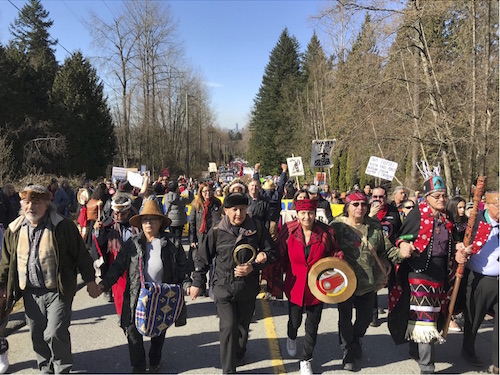
System Change, not Climate Change, is a common refrain among climate justice activists. It makes sense. In 2018, my 13-year-old niece, daughter of a hereditary chief, and her aging uncle (me) shouted this chant along with 10,000 others. Led by the drumming and songs of Indigenous people, we climbed Burnaby mountain with one purpose: to declare the pipeline to bring Alberta Tar Sands oil to export abroad from the Vancouver harbour was the wrong path. Respecting the rights of nature and indigenous territories and the vital need to politically commit to a rapid and just transition away from fossil fuels was elevated as a “Declaration to Choose Life.”
That said, the news is discouraging. Despite the largest-ever increase in wind and solar power in 2022, fossil fuel accounted for 82% of global energy consumption, 1.8% higher than the 2009-2019 period of 80.2%. Solar and wind, despite exponential growth thus far, have made no dent in fossil fuel consumption.
It is little wonder UN Secretary-General Antonio Guterres is so strident in his warnings.
“We continue to feed our fossil fuel addiction, emissions continue to rise, and our collective negligence radically alters human and natural systems……
We have a choice – collective action or collective suicide. It’s in our hands.”
Yet, alternatives like renewable energy remain a minuscule percentage of total energy generation, and world leaders continue to promote economic growth as a viable response to climate change.
Can we Navigate to a Safe Space for All Beings?
Inspiring and regenerative innovations to meet basic needs exist, and we have some understanding of what it takes to hasten their spread and scale their impacts.
The Synergia Institute seeks to elevate basic needs innovations that are democratic, decentralized, distributed, diversified, and tend toward regenerative priorities and projects. Most are tailored to strengthen the capacity and resilience of local/regional spaces and places to meet more basic needs closer to home. Ranging in size and scale, efforts are imbued with the values of reciprocity, solidarity, and sustainability.
There is much to inspire, but none of it is easy. There are no cookie-cutter approaches. Organizing and weaving together the connections, partnerships, and capacity to challenge the status quo is never simple. Agreeing on the priorities to elevate, the policies to formulate, and practices to propagate is challenging. And even where agreement is reached, investment too often falls far below what is required, and the challenges are mounting.
Meanwhile, six of the nine planetary systems enabling all that are alive to thrive are in serious trouble. In 2023, fresh water was the sixth to be breached.
Adaptation, Resilience: Restoring the Foundations for Life while Navigating Decline
Meeting basic needs in ways that draw down carbon from the atmosphere, conserve energy, and restore ecosystem health can be taken where we live. We also know that with proper resources and support, ecosystem restoration on a grand scale is possible. On the other hand, as the crises deepen, cultural and personal bandwidth narrows. Strengthening the capacity to meet basic needs closer to home will become a preoccupation for many and require a significant investment of time, energy, and resources. Strengthening personal, community, and ecological resilience close to home will only grow in importance.
These themes are explored in the 6th edition of “Towards Cooperative Commonwealth: Transition in a Perilous Century.” The MOOC features seven modules on land sovereignty, just food systems, energy democracy, sustainable livelihoods, democratizing care and financing a just transition. The key questions that frame this exploration are:
- How can we meet our basic needs in ways that advance fairness and resilience where we live and contribute to the restoration of ecosystems and GHG reduction?
- How do we shift the narrative from the mantra of endless growth to one of well-being, sufficiency, solidarity, and living within the natural limits of the planet?
- How can citizens, communities, organizations, institutions, movements, and progressive enterprises co-operate to craft and execute strategies that affirm life and resist the status quo addiction to the pathways of death?
- How do we diffuse and amplify the pathways that are generating durable results?
If what you have read so far resonates with you, challenges you, and/or intrigues you, consider registering for the MOOC and join our global community of learners. The self-directed MOOC launched January 14, but spots are still available.
Click here to register for the 2024 MOOC!
Testimonials
Here are just a few of the scores of comments from among the 1,060 people that registered from 50+ countries in 2023.
Sense of Community
“Thanks to the real sense of community the MOOC provided me, I no longer feel as though I am just a voice in the wilderness when speaking out to support those whose voice has been muffled, ignored, and marginalized. This course has given me the confidence to converse with others regarding finding solutions for complex issues. … I feel I can see new avenues towards making real and sustainable change in my neck of the woods thanks to looking at things from a systems theory lens.”
An Amazing Resource
“I felt the authors and speakers were often the most highly respected and sought-after voices. …I teach college students, so I will integrate some of what I learned in my own teaching. It was excellent – such an amazing resource.”
Peer-to-Peer Learning
“The richness of this MOOC lies in the diverse knowledge and experiences of the community, comprised of practitioners, academics, activists, and students, who come together to share and exchange knowledge in the forums. Reading and engaging with these experiences and contributions … will allow you to gain perspective on your own experiences before presenting them.”
Tangible Alternatives
“I’ve been exposed to tangible alternative models & tools that have the power to enact systemic changes towards a regenerative economy. From agriculture, energy, healthcare, and finance, the threads of how these sectors can be interwoven have become much clearer. I can better see the whole picture, which gives me the ability to act on a select area and find my role tangibly.”
Study Circles
“The local study circles organized helped to deepen knowledge and bring it into the local context… I especially loved the small group sharing, as it allowed us to be in the questions together. The interaction was key for me. And I loved that we all brought our stories. It was deepening, for sure. I had done this course a few years back and hadn’t been part of a small group. It made a big difference for me in terms of impact.”
Reflection
“The MOOC provided the time and space to have reflective conversations about systems that I encounter constantly and examples of how people have tried to change or move away from these systems.”


